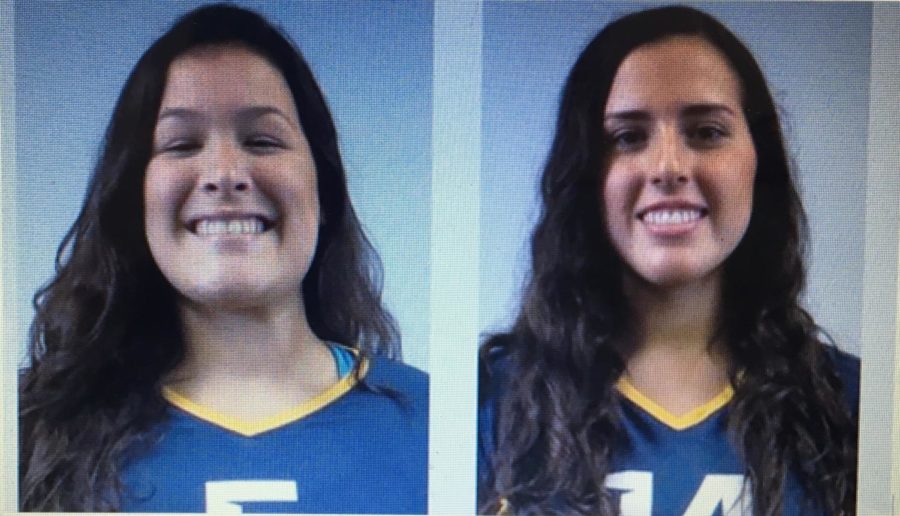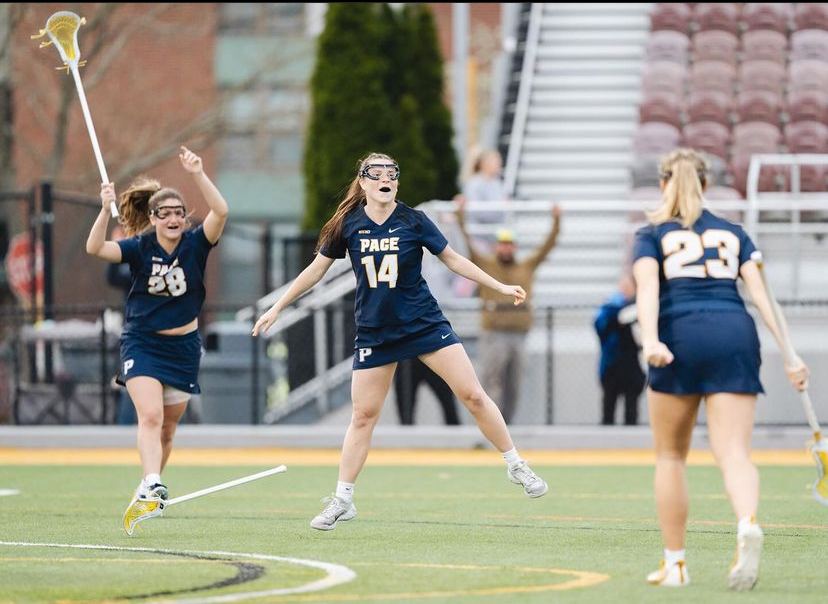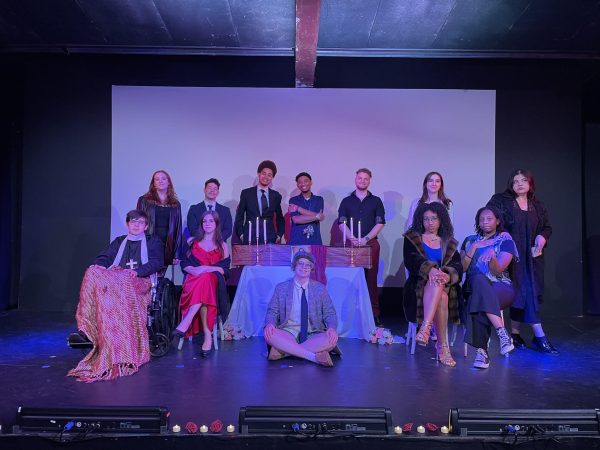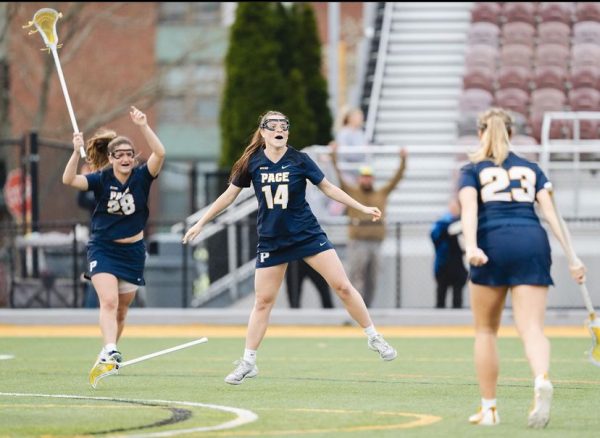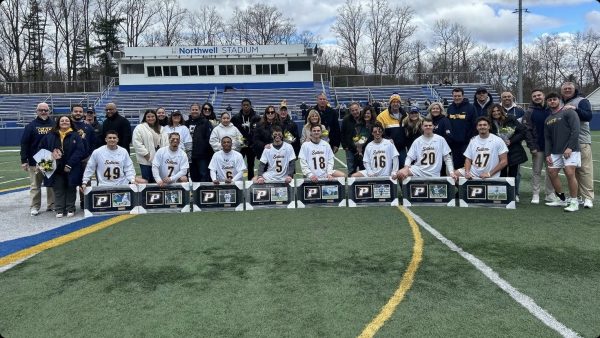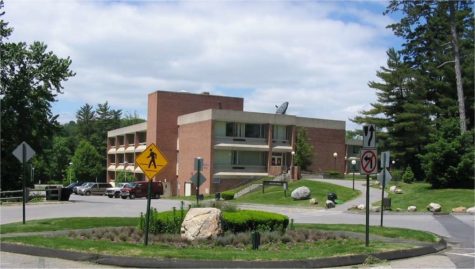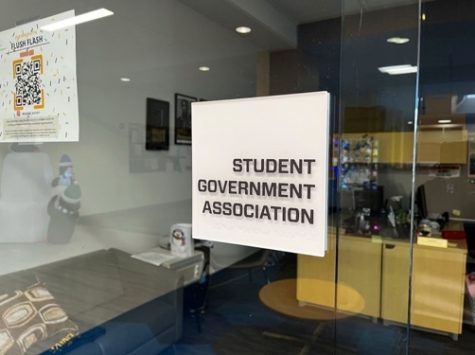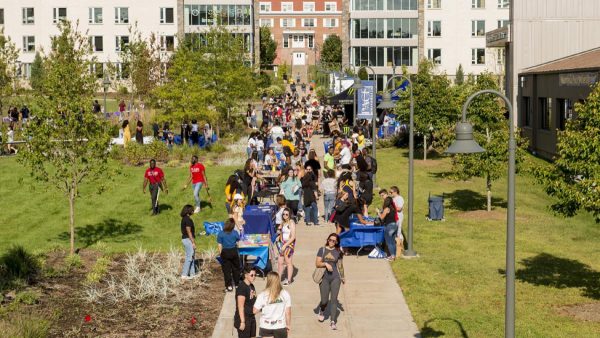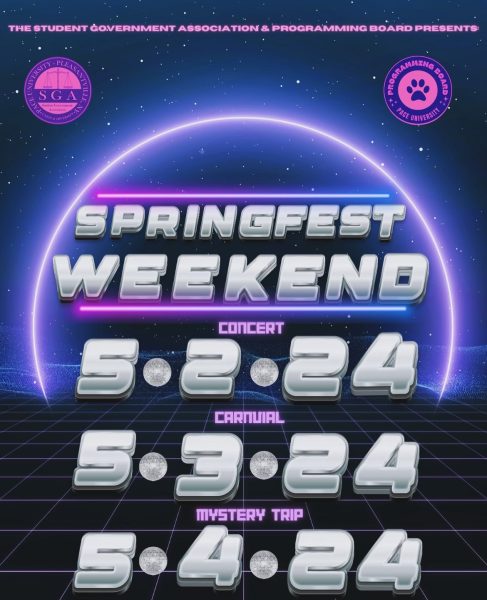Puerto Rico Strong: Inside the Story of Two Pace Athletes Weathering Hurricane Maria
Natalia Quinones’ (L) and Claudia Fontanet’s (R) families have both been impacted by Hurricane Maria. Photo Courtesy of Pace U Athletics.
November 4, 2017
Pace Women’s Volleyball player, Natalia Quinones, was only 15 when she met Claudia Fontanet and joined her club volleyball team in Puerto Rico.
The two have been teammates ever since and have needed each other more than ever this year.
Quinones, who is from San Juan, and Fontanet, who is from Bayamon, are both citizens of Puerto Rico, an island that has faced devastation over the past two months after the destructive force of Hurricane Maria. The natural disaster wrecked the city by leaving 54 citizens dead and millions without water and power.
Initially, Fontanet says she did not expect the storm to be as damaging.
“At first I think i was conflicted about it because we had seen all these news about how [Hurricane] Irma was going to be so bad and everyone was so shocked thinking it was going to be so awful, and when Irma wasn’t as bad, people weren’t as scared for Maria,” Fontanet said. “I feel like all that preparation was for Irma and when Irma didn’t happen as bad, I feel we downplayed Maria and how bad it could be.”
Luckily for Fontanet and Quinones, their families were not as negatively impacted by the storm as many other families were. However, Fontanet’s uncle’s home was destroyed and Quinones’ family faced issues with a large amount of water entering their home.
“It was really shocking for me when I couldn’t talk to my family for around two weeks, so that was hard because there’s no cell signals in some areas and it was really hard to try to communicate and that was frustrating,” Quinones said.
Both Quinones’ and Fontanet’s mothers had to go to through obstacles to either get in contact with their daughters or to just watch their games.
“I remember my mom told me that she couldn’t see our game in our house because the WiFi signal issues, so she told me she drove around for a good amount of time so she could just get a signal,” Quinones said.
“My mom had to leave the house and get on the highway just to call me,” Fontanet said.
With Hurricane Maria creating havoc through their home island, it was obviously difficult for Quinones and Fontanet to focus on volleyball and academics. After all, how can the center of your attention be spiking a ball and passing a quiz when a Hurricane is sweeping through the island you were born and raised in.
“It was really hard for me,” Quinones said. “That week I was really like emotionally unstable, I had to talk to my coach about it because I was just not there. I wasn’t thinking about school or volleyball, I was just thinking that, ‘I know this is really bad but i still want to be home with my family.'”
Despite being able to talk with her family more frequently than others, Fontanet said she was still concerned.
“I don’t think that I was that much affected, but I still watched the news and horrified with what I saw,” Fontanet said. “I did worry a lot about them and I did wish I was there with them.”
When such a difficult challenge is brought upon someone, it is important for them to have a shoulder to rest their head on. Fontanet and Quinones never had to search too far for a shoulder because they had each other’s.
“I think it was nice to have someone to relate to so I didn’t feel like I had to go through it alone and it was nice knowing that someone is going through the same thing as you,” Fontanet said.
Fontanet and Quinones relied on each other, but they also had support from their teammates and coaches.
“The teammates would always ask how’s family is doing and teammates would ask too so everyone was really supportive,” Fontanet said.
That support was necessary for Fontanet and Quinones not only because the impact the storm had on the island, but also because what seemed to be a lack of response from President Trump and the federal government when it came to relief efforts.
“I was definitely upset, but to be very honest it wasn’t surprising at all,” Fontanet said. “I didn’t like how [President] Trump handled the situation, not at all. I do not endorse anything that he did or said.”
Quinones says she was not surprised by slow timing of President Trump’s response either.
“We knew we weren’t going to receive that much help because we’re not technically a part of the U.S.,” she said.
Fontanet says the issue with relief for Puerto Rico is more complicated than donations being sent and funds being raised.
“The issue with Puerto Rico is not the money because a lot of people have given donations and a lot of people have given Puerto Rico the money and the help, but the problem is the distribution,” Fontanet explained. “A lot of people can raise funds but that’s not the issue, the issue is getting it to the people that have to get it.”
“Another issue is they’re giving it to the same people, so like they’ll give food to this community one day and then the next day they’ll give them food again and what they may need at that time is water, not food,” Fontanet said. “So, I feel like the organization really has to improve.”
Despite the destruction the storm has caused and the feeling that the federal government had a slow and irresponsible response, Quinones is looking forward to returning home.
“It’s going to be different seeing how there’s no trees and things like that, but I think spirit wise it’s still going to be the same,” she said. “Lack of electricity does not mean anything, my family is still going to be my family and we’re still going to make the best of it.”

